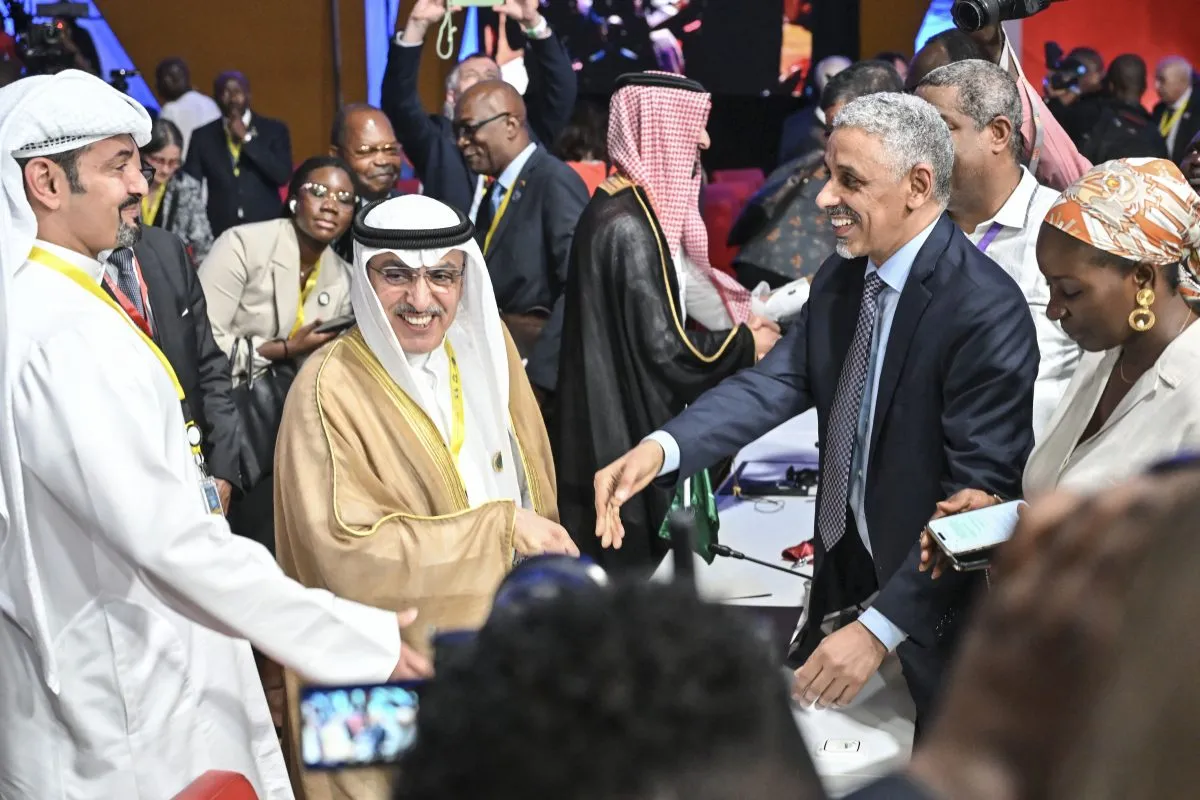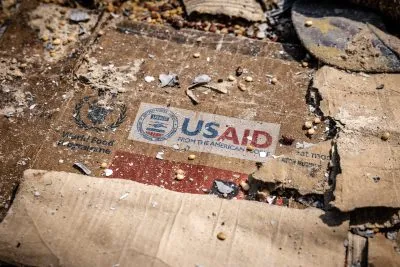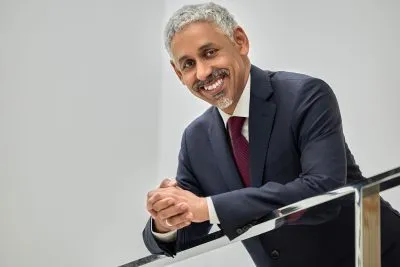Sidi Ould Tah’s election to the helm of the African Development Bank (AfDB) in May comes at a pivotal moment for Africa’s biggest multilateral lender. Africa is grappling with a worsening funding crisis and the increasingly urgent need to assert its economic independence amid fraying global multilateral cooperation.
Many African governments face severe fiscal constraints, squeezed by dwindling donor support, limited budgetary room and crippling debt repayments. These pressures have forced leaders to make tough choices about where and how to spend limited funds, with critical programmes in healthcare, education and infrastructure bearing the brunt of budget cuts.
Financing to address the climate crisis is also in alarmingly short supply, with a recent Financial Sector Deepening (FSD) report finding that only about 23% of the estimated annual funding required to meet the 2030 climate goals in Africa is currently being met.
African leaders are looking to the AfDB to help them not only confront these pressing challenges, but also reset Africa’s development paradigm by helping countries to transition from aid dependency to investment-driven economic growth.
“Tah’s agenda will revolve around shifting the bank from an aid provider to an investment catalyst,” wrote Jacques Emmanuel Attoumbre, an analyst at Concerto, based in Paris.
Arab backing
Attoumbre credits Tah’s victory in the elections to “widespread support and [the] backing of the Arab world”.
Tah secured 76.18% of the total vote and 72.37% of regional votes in the third round of voting, defeating Zambia’s Samuel Maimbo, Senegal’s Amadou Hott, Chad’s Abbas Mahamat Tolli and South Africa’s Swazi Tshabalala.
The winning candidate must get 50.01% of both the regional and total vote. The bank’s shareholder base includes 54 African countries and 27 non-African countries.
“While he was the last to declare his candidacy, his bid was supported by a coalition of African and Arab countries, notably Saudi Arabia, which lobbied Arab League members,” Attoumbre noted.
Tah, who has four decades of experience in international finance, is the outgoing president of the Arab Bank for Economic Development in Africa (BADEA) and a former economy minister for Mauritania. Attoumbre believes that his track record at BADEA strongly appealed to shareholders.
“His strong track record at the BADEA – where he more than tripled the institution’s capital over his presidency and secured the second-best credit rating, a notch below the coveted AAA rating – also played in his favour,” he says. The bank is rated double A-plus by Moody’s, Standard & Poor’s, Fitch and the Japanese Credit Rating Agency.
“It’s too early to tell whether he can replicate the wins of his tenure at the helm of the BADEA. The litmus test of his mandate will likely be how successfully he can secure billions of dollars from the Gulf to support Africa’s development,” he adds.
Renewed optimism
Frannie Léautier, a nonresident fellow with the Atlantic Council’s Africa Center, observed that Tah’s election had brought about a “renewed sense of optimism”.
“As Tah’s campaign manager, I witnessed firsthand how his platform evolved – and how shareholders ultimately rallied behind him,” she said.
“Tah’s decisive victory reflects a desire among shareholders for a leader with a track record of institutional transformation and financial innovation,” she added.
With the US proposing to cut $555m in funding for the AfDB, shareholders opted for a candidate who could mobilise alternative funding, she argued.
“Tah is expected to enhance domestic resource mobilisation and implement innovative financial instruments. He is also slated to strengthen partnerships and diversify funding sources, especially with emerging powers such as Turkey, the United Arab Emirates, Saudi Arabia and others, to secure needed resources for the continent’s development agenda,” she noted.
Passing the baton with confidence
Tah will take the reins of the AfDB in September, succeeding Nigeria’s Akinwumi Adesina who focused on growing the bank’s balance sheet and improving its development impact. Under his leadership AfDB’s capital grew from $93bn in 2015 to $319bn in 2025.
“This expansion enabled unprecedented financial support to African countries, with $102bn in approvals over the past 10 years, accounting for 46% of all approvals since the bank’s inception in 1964,” he said at the closing ceremony of the AfDB annual meetings in Abidjan, his last as president.
“These are not just numbers. They represent transformative impacts across Africa,” he said, noting that the bank’s initiatives in areas like electricity, water and sanitation, food security, healthcare and transport had impacted 565m Africans over the past decade.
“As I prepare to pass the baton I do so with confidence. I am proud to leave behind a very strong financial institution that can weather any storms,” he told journalists at the AfDB annual meetings. Adesina expressed confidence that, with Tah, the bank was in “good and safe hands”.
“Sidi is mature, experienced and competent. The bank is in good and safe hands,” he posted on social media platform X.
Adesina is charismatic and outspoken, while Tah is seen as having a more reserved demeanour. Yet, personalities aside, the two seem to share the same passion for results and determination to see Africa succeed in a world where the odds are not always stacked in its favour.
The road ahead for Tah will be challenging as he embarks on his five-year term as president of Africa’s largest development finance institution. He will have to knock on multiple doors to secure new funds and offset the shrinking contributions of Africa’s main donors.
He will also have to re-engineer processes at the AfDB to help it move with greater speed and agility in view of Africa’s expanding development needs. It’s certainly not going to be a walk in the park, but Tah is confident that he will deliver on his vision.
“I extend my deepest gratitude to all who supported me – regional and non-regional members of the bank and the leaders and countries that they represent. This marks the beginning of a challenging yet inspiring journey – together, we will drive Africa’s transformation with unity, ambition and purpose,” he posted on X after the election results were announced.
Want to continue reading? Subscribe today.
You've read all your free articles for this month! Subscribe now to enjoy full access to our content.
Digital Monthly
£8.00 / month
Receive full unlimited access to our articles, opinions, podcasts and more.
Digital Yearly
£70.00 / year
Our best value offer - save £26 and gain access to all of our digital content for an entire year!


 Sign in with Google
Sign in with Google 



